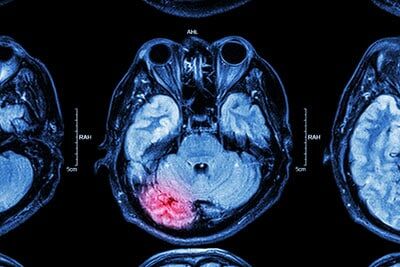What Are Impact Injuries to the Brain in Car Accidents?

Car crashes are one of the leading causes of traumatic brain injuries (TBI). The Centers for Disease Control’s (CDC) Traumatic Brain Injury Surveillance Report found that 60,565 TBI-related deaths occurred during 2018 and 60,611 TBI-related deaths took place in 2019 in the United States.
According to the CDC’s report, unintentional motor vehicle crashes accounted for approximately 17% of those deaths. Many car accident victims suffer from impact related brain injuries called Coup, Contrecoup and Coup-contrecoup brain injuries which can cause lifelong debilitating symptoms and even death.
What are coup, contrecoup and coup-contrecoup brain injuries?
In simple terms, these are traumatic brain injuries due to blunt force impact which causes a contusion to the brain, or severe bruising of the brain. The Merriam Webster Dictionary definition of coup is an “injury occurring on the side of an organ (as the brain) on which a blow or impact is received.” A coup injury will result in bruises, cuts, contusions, or other marks at the site or below the site of impact. Symptoms can be mild to severe and include bleeding, bruising, brain swelling and hemorrhaging of the brain.
Contrecoup is defined as an “injury (as when the brain strikes the skull) occurring on the side of an organ opposite to the side on which a blow or impact is received.” A contrecoup injury may not be visible because it affects the side of the brain opposite from the impact. Injuries like this are often misdiagnosed and can cause long-term risks for victims.
Symptoms of contrecoup injuries include loss of consciousness, coma, confusion, seizures, headaches, nausea, vomiting, fatigue, loss of balance, dizziness, memory problems, depression, anxiety, blurred vision, ringing in the ears, slurred speech, sensitivity to light, language issues.
In even simpler terms, coup is the blow to the head and contrecoup is the counterblow to the head. A coup-contrecoup is a combination of the blow and the counterblow at the same time. During a coup-contrecoup injury, the initial impact damages one part of the skull with blunt force; for example, a driver’s head hitting the steering wheel. The driver’s brain moves inside the skull, due to the force from the impact pushing the head backwards. This movement pushes the brain into the skull, causing a contrecoup injury on the other side of the victim’s head.
Symptoms of a coup-contrecoup injury include outward signs such as bleeding, brain swelling, and a fractured skull, along with the cognitive and physical symptoms outlined above for a contrecoup injury.
What types of impacts cause coup, contrecoup, or coup-contrecoup TBIs?
- Rollover accidents often result in coup-contrecoup injuries since all parts of the brain may be impacted by the accident at once. The National Library of Medicine asserts that 21% of seriously injured occupants in rollover crashes suffer serious head injuries and the occupants on the far side of the rollover tend to experience head injuries more frequently. Rollovers tend to result in the most serious brain injuries since the head can be subjected to impact, pressure, and penetrating injuries.
- Head-on collisions cause trauma to the brain and often result in coup, contrecoup, or coup-contrecoup injuries. In these collisions, the head often hits the steering wheel, dashboard, or windshield. Flying debris and the oncoming vehicle may impact the victim with blunt force trauma to the brain as well. This type of collision also carries significant risk for brain penetration as well.
- Rear-end collisions often cause the victim’s head to hit hard surfaces like the steering wheel, dashboard, or windshield after a collision, causing coup, contrecoup, and coup-contrecoup injuries. Concussions, which are related to coup injuries, often result and may cause lifelong issues for the victim.
- Side-impact or sideswipe collisions can result in coup, contrecoup, or coup-contrecoup injuries due to the brain rotating quickly at the speed of impact. Victim’s heads are often thrown in the direction of the crash, causing the brain to shake inside the skull, as well as causing the head to hit the window. This type of accident can also result in whiplash, neck injuries and spinal cord injuries.
A brain injury sustained in a car crash is serious. Do not wait to seek medical care and advice. Long term effects of coup and contrecoup injuries can alter a person’s mental, physical, financial, and social life. Brain injury patients can experience many challenges due to mental and physical pain and disability. They often lose jobs and income and are overwhelmed by medical costs.
Contact our dedicated lawyers now
Don’t let this happen to you. If you have suffered a brain injury due to someone’s negligence, seek the counsel of an experienced Maryland car accident attorney at Plaxen Adler Muncy, PA. We have the necessary expertise to help you receive the compensation that you are entitled to. Call us today at 410-730-7737, or fill out our contact form to schedule a free consultation. We have offices throughout the state of Maryland.
Bruce Plaxen was honored as the 2009 Maryland Trial Lawyer of the Year by the Maryland Association for Justice, and assists victims of personal injury, car accidents and medical malpractice throughout the state. For more information on his legal background, please visit his attorney bio.
